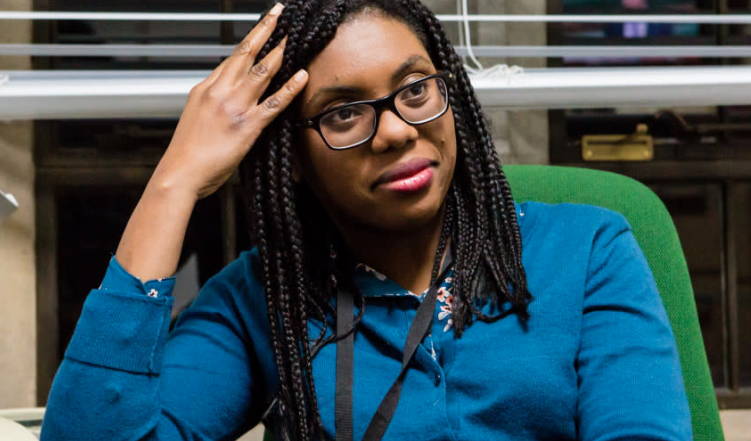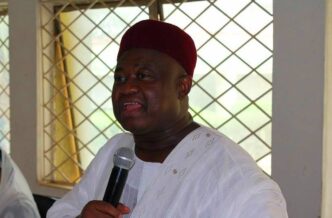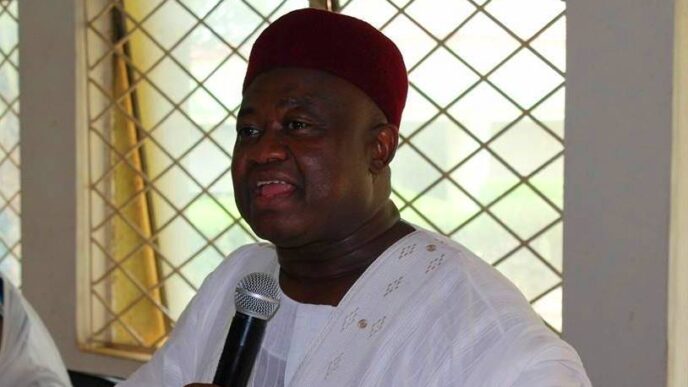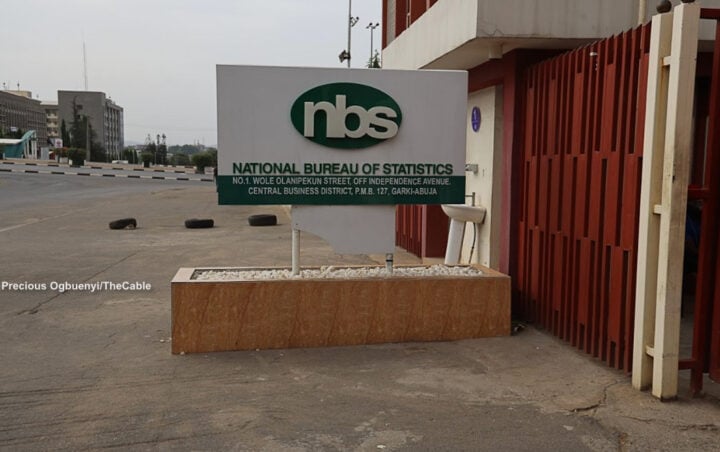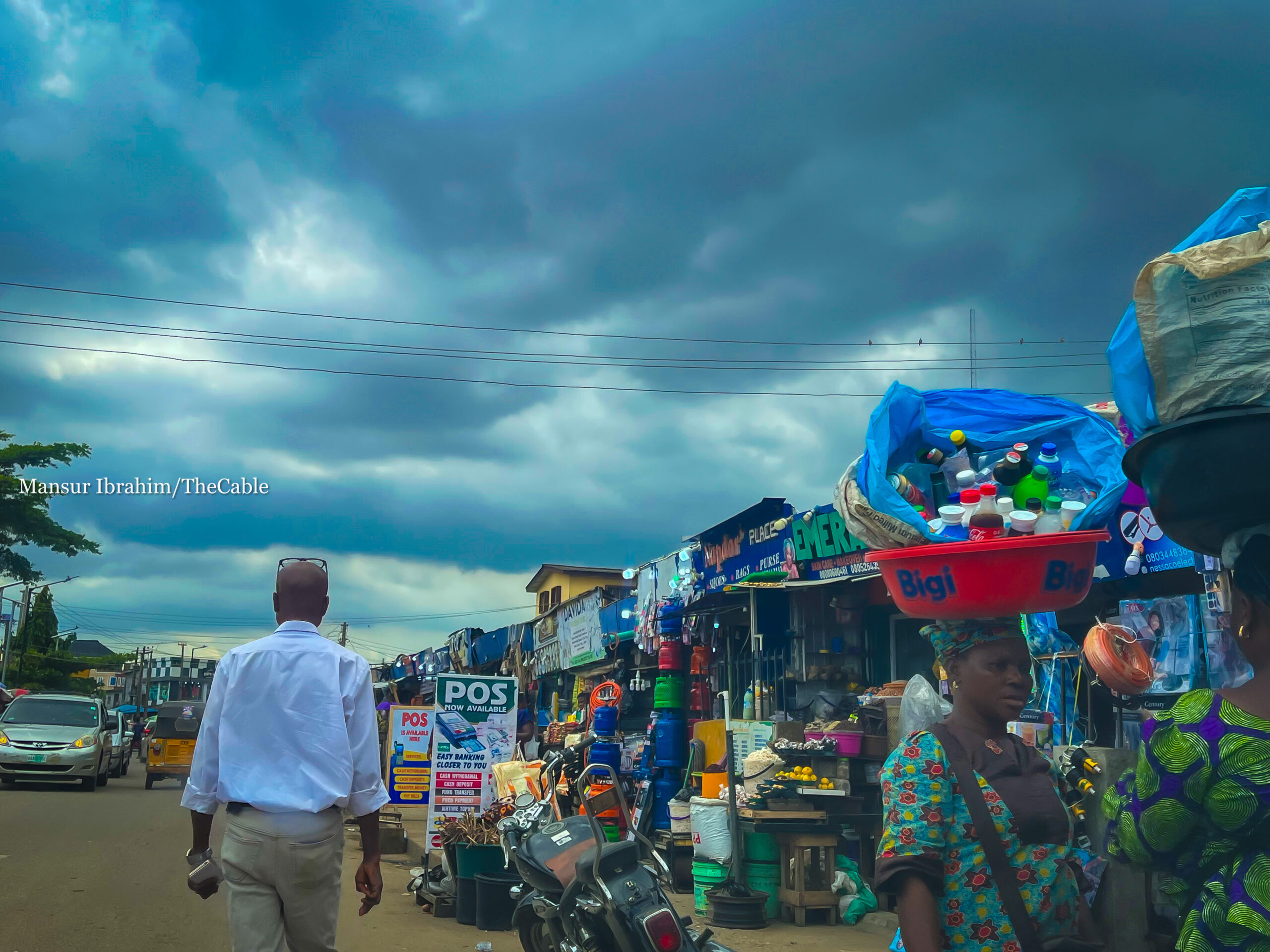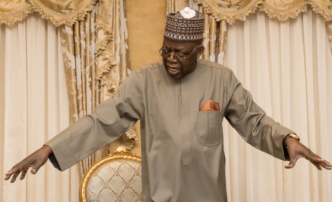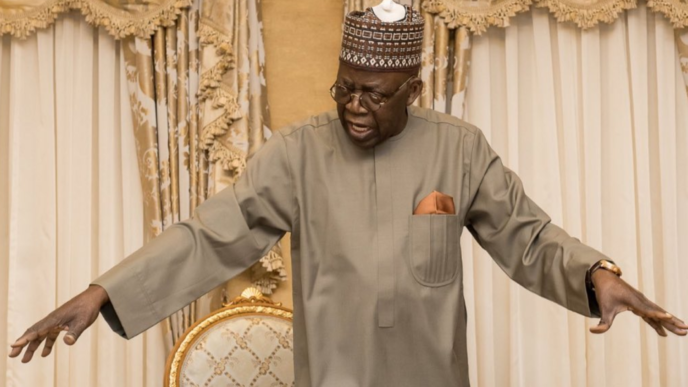Kemi Badenoch
BY BAYO OLUPOHUNDA
When the teenage and impressionable Olukemi Olufunto Adegoke (later Badenoch) completed her schooling at the International School University of Lagos and left Nigeria in 1996 at the age of sixteen, Nigeria was on the brink – a brutal and repressive military dictatorship. Violent crime rocked several cities, especially Lagos, state-sponsored killings, infrastructural decay and an annulled election had turned the country into a pariah state and citizens lived in fear.
Three years before Kemi Badenoch left, the maximum ruler, Ibrahim Babangida, had hurriedly departed power after eight years of rudderless transition and massive corruption said to be the worst in Nigeria’s contemporary political history. Three months after Babangida left, the late General Sani Abacha had shoved the interim President Ernest Shonken aside in a palace coup and began a reign of terror. It was against this backdrop that the young Kemi left the country, only to return on visits on a few occasions.
Kemi’s journey to Britain after her education at the elite staff school UNILAG where her mother, Feyi, had also lectured in the physiology department at the university marked the first time she would finally leave Nigeria having been brought back from Britain after birth in 1980.
Advertisement
The intervening teenage years were spent on visits, crisscrossing the United States, where her mother had also been in academia. But Kemi spent most of her teenage years schooling in Lagos, Nigeria’s commercial and political capital, before the military head-of-state and dictator Ibrahim Babaginda moved the seat of power to Abuja in 1991 when Kemi was barely 11 years old.
When she departed Nigeria in 1996 for further studies in Britain, Nigeria was in the worst period of its socio-political history. Successive military dictators and their civilian collaborators ran the country aground since the military took power from the equally monumentally corrupt civilian administration of the late President Shehu Shagari in 1983.
Even as a teenager and like many other young Nigerians who grew up and lived through the 1990s decade in Nigeria, it was clear that the epoch was Nigeria’s lowest ebb. Three years before Kemi left, the military dictator and self-styled President Ibrahim Babangida had annulled the 1993 presidential election widely acclaimed to have been won by the late MKO Abiola. The annulment plunged the nation into a violent crisis reminiscent and comparable only to the Western Region crisis of 1966.
Advertisement
The aftermath of the annulment led to widespread, bloody riots and the arrest of those critical of the Babangida regime. When he eventually left power and Abacha took over, the repression by the military became full-blown. Academics like Kemi Badenoch’s mother were targeted by the military as the Academic Staff Union of Universities (ASUU) was one of the major opposition groups that confronted the military. Universities were shut down for two academic years. Femi Adegoke, Kemi’s father, who was an alumnus of the University of Lagos and who later founded a publishing company in Nigeria, was an activist for the rights of the Yoruba people and had also been a fierce critic of the military.
He advocated the restructuring of Nigeria around regionalism. Abacha and his goons under the command of Major Al-Mustapha silenced critical voices. Opposition members were abducted, and some just simply disappeared. State-sponsored killings by the Abacha hit squad claimed the lives of many opposition members such as Alfred Rewane, Kudirat Abiola and the journalist Bagauda Kaltho. Ken Saro-Wiwa, the Ogoni minority rights activist, was hanged. Hundreds of Ogonis were murdered by Abacha.
The mid-1980s and 1990s decade marked Nigeria’s descent into the abyss; from Buhari’s Decree 4 that repressed press freedom, Babangida’s Maradonic and endless transition programmes that kept him in power for eight years to Abacha’s full-blown dictatorship; those who lived through those dark, haunting years would never forget the trauma.
Kemi Badenoch was one of such Nigerians.
Advertisement
In the midst of the political chaos, the ’90s Nigeria was also in the grip of insecurity occasioned by violent armed robberies, especially in Lagos and other major cities. Homes and banks were attacked. While Lawrence Anini’s violent robberies dominated the 1980s like an outlaw in the former Bendel state, Shina Rambo the armed robbery kingpin terrorised south-west Nigeria in the 1990s. Those names and other lesser-known armed robbery incidents instilled fear in every household in Lagos and other parts of the country
In 1995, a year before Kemi left Nigeria, 43 convicted armed robbers were shot at a Lagos prison execution ground with a crowd of about 1,000 witnessing the execution by firing squad. That was not the only time armed robbers were executed. The Los Angeles Times had reported in its July 23rd 1995 edition about “an upsurge in violent crime dramatically in Lagos and other urban centres in Nigeria in recent months as the economic and political life in the country has deteriorated”.
According to the LA Times, “the execution was the largest number of prisoners executed in one day in Nigeria in decades and was certain to draw more international attention to Nigeria’s military rulers, widely criticised for a secret coup trial which convicted a former head of state and 39 others”.
The 1990s decade was a total breakdown of law and order.
Advertisement
Violent robberies were rife and death by firing squad was common at the Bar Beach Lagos. Indeed, life in Nigeria during this period was like the Hobbesian State where life was short and brutish. Fear and uncertainty dominated the entire country.
Kemi Badenoch lived in Nigeria during these dark years. As a young person, like many other young people of her age, she experienced firsthand the brutal regimes of successive military dictators who damaged the country with ill-thought economic policies. When Kemi Badenoch left Nigeria, Abiola was still in incarceration, Olusegun Obasanjo had been hounded into prison over allegations of plotting to overthrow Abacha.
Advertisement
It was also in the 1990s decade Nigeria began to experience infrastructural collapse and amenities. Public water stopped running, electricity became epileptic. All the gains of the first decade of independence were gradually eroded by the clueless and selfish military regimes. In 1987, the Babangida regime’s Structural Adjustment Programme (SAP) had caused massive inflation and devaluation of the naira. The aftermath of the collapse of the economy led to Nigerians leaving the country as the economy totally collapsed.
In 1996, Nigeria was categorised as a pariah nation and alienated from the rest of the world. There is no doubt that Kemi’s perspective of Nigeria was shaped by the harrowing and traumatic experience of living in the country during the dark years of military dictatorship headed by Buhari, Babangida and Abacha. Kemi was correct in her recollections of what transpired in Nigeria during the mid-eighties and the decade after.
Advertisement
No Nigerian who lived through that period of our contemporary history would disagree with the UK Conservative Party leader. Not even the coming of the civilian administration at the turn of the millennium changed Nigeria’s political trajectory as the country sank deeper into corruption.
Kemi’s reflections about Nigeria while growing up in the country were accurate. Her assessment still resonates today. Really, what has changed? The police are still terrorising Nigerians. Just like the military elite class, the political elite are more corrupt than ever before. Violent crimes have worsened in the country with terrorism adding another layer of insecurity to the dysfunction since Kemi Badenoch left 28 years ago.
Advertisement
The attacks and criticism of Kemi Badenoch including that of Vice-President Kashim Shettima to gain political class is hypocritical. This faux patriotism by Kemi’s critics is the reason why the country has remained comatose. Kemi Badenoch is not the problem. Her criticism of Nigeria’s political class and her institutions should lead to self-reflection and change.
Views expressed by contributors are strictly personal and not of TheCable.

